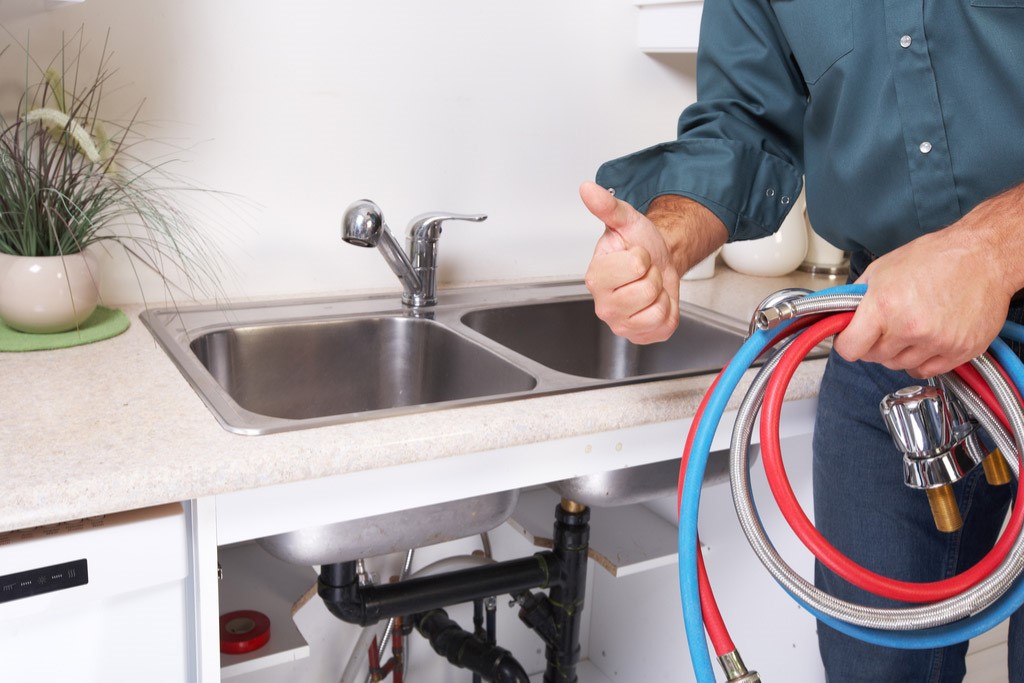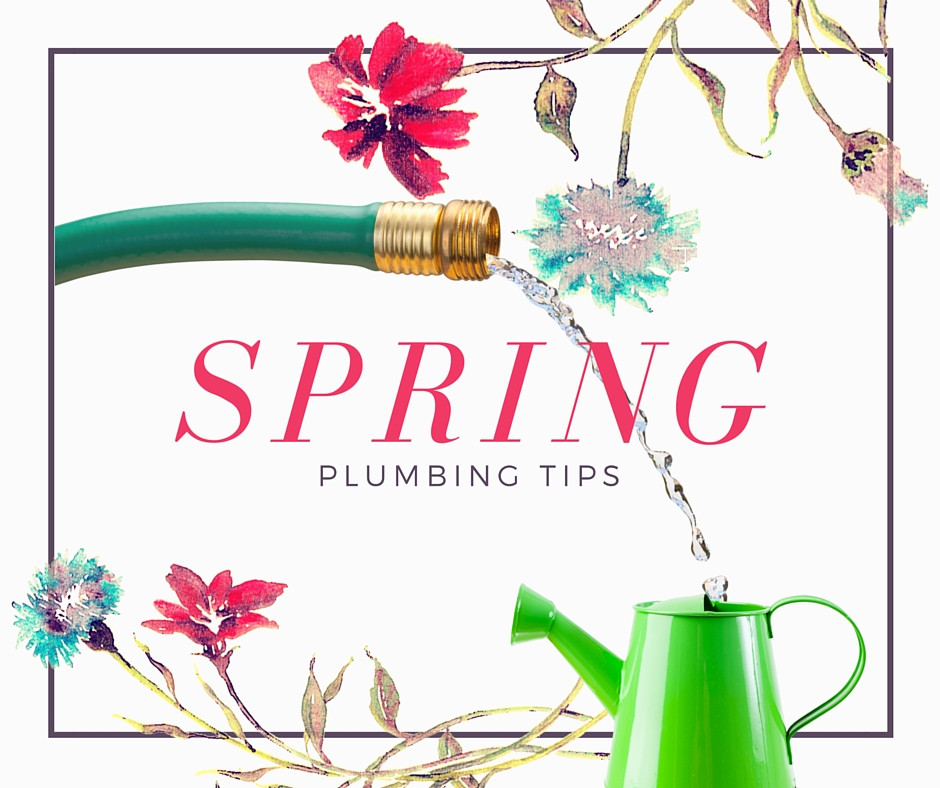Did you know that Total Mechanical Systems has a new and improved Plumbing department here to serve ALL of your home’s plumbing and water heating needs?!

Call us today and get $50 OFF Any Plumbing Repair OR $100 OFF Any Water Heater Installation through the end of the month!!!
Check out these spring plumbing tips as well from Direct Energy to help you conserve water and reduce larger pipe problems!

Inspect Faucets and Below Sink Pipes
Check sink, bath and shower hardware for signs of seeping and leaks. While you’re at it, take a look at exposed pipes below the sink as well as in your basement and utility room. This is also a good time to check your pipes for rusted, deteriorated hardware. Should you find a section of your home’s water pipes displaying significant corrosion, it’s best to have the part replaced immediately rather than allow the corrosion to continue.
Keep an Eye Out for Sweating Pipes
While freezing pipes are a top cold weather threat, pipes in the summer can actually display too much flowing water. Sweating pipes are a common summer occurrence; your pipes sweat because the water inside them is significantly colder than the outside air. This can make your pipes appear as though they are leaking. Even though your pipes are only sweating, the result is still the same: waste. Wrapping your pipes — just as you would during the winter — can help protect against this waste.
Look Out for Leaky Toilets
Depending on the location, a leaky toilet can add a lot of money to your monthly bill over time, or cause serious damage to your floors. For starters, feel the floor around the toilet. If it’s wet, that could be a sign of a failed joint or broken seal. Whatever it is, it should be fixed before the ongoing wetness causes damage to the floor or the ceiling below. Then, lift the lid of your tank and put in thee to four drops of food coloring. Wait 30 minutes and check the bowl. If the coloring has made its way into your bowl, you may have a leak.
Check Your Washer’s Supply Hoses
Pull out the washing machine from the wall, checking the floor for signs of drips and leaks. Then, inspect the water supply hoses to the machine from end to end. If the hoses are made of rubber, look for signs of deterioration, such as cracks and bulges. It’s important to remember that rubber hoses deteriorate with age, and studies show failure rates increase dramatically in hoses older than five years. If they’re at the five-year mark, replace them. In the meantime, don’t run the washing machine when no one is at home.
Clean Your Sump Pump
Disconnect the power source, and remove and clean the pump, including the pump screen or inlet. The pump screen or inlet should be cleaned every three to four months. Then, return the unit and restore the power, and perform a test run by pouring in some water to make sure it’s working properly.
Remove Obstructions in Your Sprinkler System
It’s important to monitor your system throughout the season to make sure individual sprinkler heads do not become clogged with obstructions like dirt, grass clippings or other debris. Should a sprinkler head be jammed with this material, it can cause an unnecessary buildup in water pressure that can burst the system’s water main. Test your system at the start of the year and monitor it throughout the season to make sure all heads are running as they are supposed to. It’s also a good idea to check each head to make sure they haven’t been damaged — perhaps as a result of a careless pass with the lawnmower. A damaged head does more than simply fail to water the area it is assigned; it can also be a water waster, as fluid is still assigned to the head by the system but isn’t being dispensed as it should be. If you do find a damaged sprinkler head, have it replaced immediately.
Inspect Your Hoses for Expansion
While cold air makes things shrink, warm air causes expansion – even in your water pipes and hoses. If you’re curious about the effects of expansion on your home’s pipes, pay close attention to any hoses located around your home’s exterior – like your garden hose – as they will show signs of expansion first. Rapid expansion caused by temperature increases and direct sunlight can cause these hoses or pipes to expand and crack. If you notice such damage around your home, it’s important to get these pieces replaced as quickly as possible. The longer a crack is allowed to exist, the more water will be wasted due to unnecessary leakage.
Give the Outdoor Faucet a Test Run
After its winter hiatus, you’ll want to be sure Jack Frost hasn’t done damage to the hardware and pipes. (Hopefully, the outside water supply was shut off and drained before freezing temperatures arrived.) Turn on the water supply, and throw open the valve. You may hear some rushing air and pops at first. Then, close the valve, checking for leaks and drips. Then head indoors to check the pipes for signs of leaking.
Turn the Valve of the Water Main
After years of resting in the open position, the whole house’s water shutoff valve can get difficult to maneuver, especially if it’s a turn-handle style. Give the valve a few twists, turning it counterclockwise until it’s closed, and then back to the original open position. If you’re in the market for an upgrade, consider installing an app-controlled smart water valve. That way, you and your family can safely turn off the water supply with a mobile device.
Limit Water Pressure Problems
During the summer months, overall water usage will increase, which in turn can directly affect your home’s water pressure. Try to avoid peak water usage times during the day and take your shower a little earlier or later than you normally would. You can also take a quick look around your neighborhood to see when most of your neighbors run their sprinklers and set yours to start a little later, preserving your water pressure. If you apply these strategies and your water pressure still seems low, you may have a more serious problem such as a ruptured water main. A ruptured water main may not be immediately visible to you, but it will require a professional plumber to repair. In addition to low water pressure, evidence of a ruptured water main may also include dramatic increases to your water bill and soggy/bulging spaces in your yard where underground water pipes run.
Source: https://www.directenergy.com/learning-center/how-to-prepare-your-pipes-for-spring-summer?fbclid=IwAR1gXRDvXwQfwjqirLLNuhJzdz3obVmKG_q5DvlMhgXWXsqo2LurvdzcXnM





